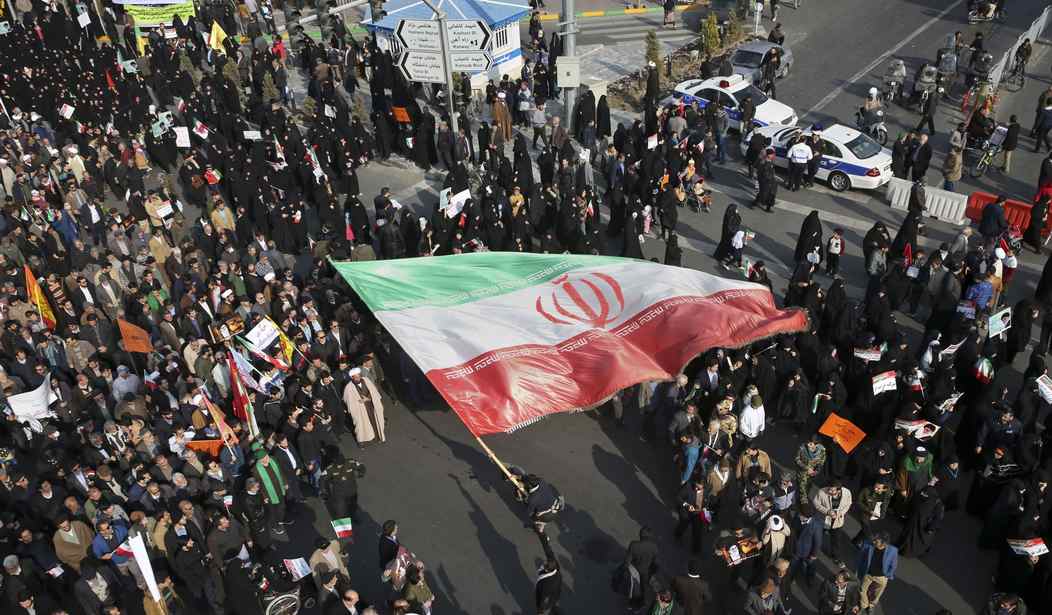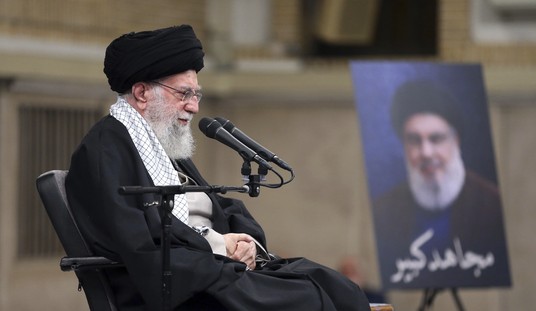Eldar Mamedov’s recent article (The American Conservative, Jan. 16), ostensibly critiquing General Keith Kellogg’s participation in an event hosted by the main Iranian opposition National Council of Resistance of Iran (NCRI) in Paris, is a textbook example of propaganda masquerading as analysis.
Mamedov’s piece, which attempts to paint the NCRI and its principal member, the Mujahedin-e Khalq (MEK), as a dangerous “cult,” reeks of biases rooted in discredited Iranian regime talking points. By systematically dissecting Mamedov’s assertions and juxtaposing them against his own checkered history and affiliations, the real motives behind his invective become glaringly evident.
Mamedov’s central claim that the MEK is a “cult” with a “history of anti-American terrorism” is a well-worn trope propagated by Tehran’s Ministry of Intelligence and Security (MOIS). This assertion conveniently ignores the organization’s decades-long struggle for democracy and human rights in Iran, often at great personal cost to its members. Over 4,000 lawmakers in 50 countries, including majorities in 34 legislatures, have endorsed the NCRI’s vision for a democratic Iran. This broad coalition underscores the MEK’s credibility and its role as a legitimate opposition force.
To understand the motivations behind Mamedov’s vitriol, one must scrutinize his own affiliations and actions. Mamedov’s name surfaced prominently during the Qatar corruption scandal, colloquially known as Qatargate, which rocked the European Parliament in 2022. Belgian authorities’ investigations into allegations of bribery and foreign interference implicated Mamedov due to his close ties with Tehran’s officials and lobbyists. His longstanding relationship with the Iranian regime includes frequent visits to Iran, where he liaised with key regime figures such as former president Ali Akbar Hashemi Rafsanjani.
Recommended
Mamedov’s role as a foreign policy adviser within the Socialists & Democrats (S&D) group in the European Parliament further illustrates his questionable loyalties. According to reports from reputable outlets like Politico and Corriere Della Sera, Mamedov consistently promoted Tehran’s agenda under the guise of fostering dialogue. His alleged activities were so egregious that the S&D group expelled him and referred him to Belgian authorities for investigation. The U.S. secret service had previously flagged his proximity to Iranian representatives in Washington, leading to his recall from Latvia’s embassy in the United States.
More recently, on January 8, 2025, the Belgian daily Le Soir reported that the judge in the Qatargate scandal indicted Mamedov as one of the three political advisors suspected of having participated in the a vast corruption operation to the detriment of the European institutions.
Mamedov’s affiliations extend across the Atlantic, where he collaborates with known Iranian regime talking heads such as Trita Parsi, the disgraced executive vice president of the Quincy Institute. Parsi’s previous organization, the National Iranian American Council (NIAC), is reported to be acting as a lobbying arm for Tehran. Mamedov's articles frequently appear in Responsible Statecraft—a publication of the Quincy Institute, which might more aptly be named Irresponsible Appeasement—thereby further disseminating narratives that favor the regime.
While Mamedov postures as a defender of diplomacy and pragmatism, his actions betray a different agenda. His participation in high-profile lobbying efforts for Tehran, coupled with his dismissal from influential roles due to misconduct, paints a portrait of an operative intent on advancing the interests of a hostile regime. Mamedov’s purported calls for dialogue ring hollow when juxtaposed with his unwavering support for one of the world’s most repressive governments.
Mamedov’s attacks on the MEK are emblematic of Tehran’s broader strategy to delegitimize its opponents. A particularly blatant instance of this strategy was the so-called "Iran Experts Initiative." The individuals involved, purportedly experts, were in fact closely aligned with Tehran's agenda, receiving directives from the Foreign Ministry in Tehran to propagate its narrative within the EU and Washington, D.C.
Mamedov’s claim that Kellogg’s engagement with the MEK is a “harmful distraction” to U.S. foreign policy is both ironic and disingenuous. The real threat to democratic values lies in the infiltration of institutions like the European Parliament by individuals advancing Tehran’s agenda. Mamedov’s decade-long campaign against the MEK is a case study in how autocratic regimes exploit proxies to undermine their opponents. His activities not only damage the credibility of democratic institutions but also embolden a theocracy that systematically denies its citizens basic rights.
It is essential to view Mamedov’s polemic within the broader context of Tehran’s global disinformation campaign. The Iranian regime has invested significant resources in vilifying the MEK, recognizing it as the most serious threat to its survival. This campaign includes the dissemination of false narratives, character assassination, and the orchestration of smear campaigns through intermediaries like Mamedov. These efforts aim to distract attention from the regime’s atrocities, including its brutal suppression of protests, its destabilizing regional activities, and its pursuit of nuclear weapons.
Mamedov’s history of entanglements with Tehran’s officials, his expulsion from the S&D group, and his continued collaboration with known regime apologists render his credibility null. In contrast, the MEK’s unwavering commitment to democratic principles and its broad-based international support highlight the organization’s legitimacy as Iran’s principal opposition.
The international community must remain vigilant against attempts to undermine legitimate opposition movements through disinformation and deceit. It is not the MEK’s advocacy for a free Iran that is a distraction, but the smokescreen created by Tehran’s proxies to obscure the regime’s crimes.

























Join the conversation as a VIP Member